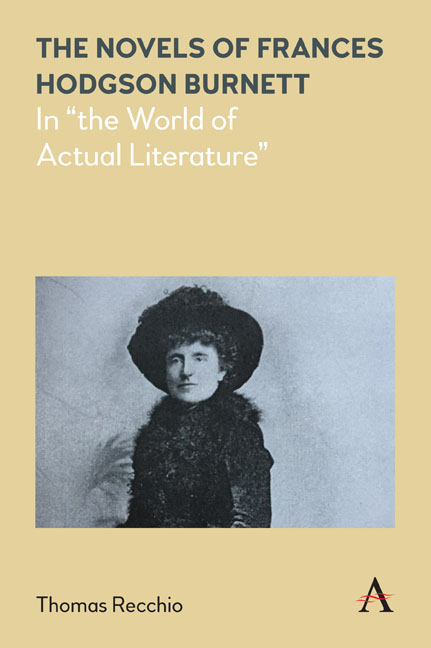Book contents
- Frontmatter
- Contents
- Acknowledgments
- Introduction
- Chapter One Learning from Elizabeth Gaskell
- Chapter Two Writing as an American: The Portrait of a Washington Lady
- Chapter Three Historical Dreamscapes and the Vicissitudes of Class: From A Lady of Quality to The Methods of Lady Walderhurst
- Chapter Four Transatlantic Alliances in The Shuttle and T. Tembarom
- Chapter Five After the Great War: Emerging from the Wasteland in The Head of the House of Coombe and Robin
- Bibliography
- Index
Chapter Five - After the Great War: Emerging from the Wasteland in The Head of the House of Coombe and Robin
Published online by Cambridge University Press: 24 June 2020
- Frontmatter
- Contents
- Acknowledgments
- Introduction
- Chapter One Learning from Elizabeth Gaskell
- Chapter Two Writing as an American: The Portrait of a Washington Lady
- Chapter Three Historical Dreamscapes and the Vicissitudes of Class: From A Lady of Quality to The Methods of Lady Walderhurst
- Chapter Four Transatlantic Alliances in The Shuttle and T. Tembarom
- Chapter Five After the Great War: Emerging from the Wasteland in The Head of the House of Coombe and Robin
- Bibliography
- Index
Summary
Burnett's transatlantic novels articulate the core of her essentially optimistic vision. From Fauntleroy's rebuilding of the workmen's cottages on the Dorincourt estate to Bettina's comprehensive restoration of house, stables and gardens at Stornham Court to T. Tembarom's restoration of the physical and mental health of the rightful heir to the Temple Barholm estate in Lancashire, those novels assemble the elements of what in The Secret Garden is rendered as a myth of ecological wholeness, where the natural world and human community achieve elemental attunement and in the process enable the healthy renewal of the land and of the human body and mind. In that group of novels Burnett subordinates her interest in the economic, political and social mechanisms that disrupt the possibilities of such ecological wholeness, which she had explored in her industrial, political and historical novels, even as those disruptive energies still linger in the a- perceptive background through such figures as the false claimant in Little Lord Fauntleroy, Nigel Anstruthers in The Shuttle and Captain Palliser in T. Tembarom. Such figures in various ways both abuse nature and disrupt generative human relationships, but their power to overcome what Burnett presents as the forces of evolutionary ecological growth and health is limited. In her work from the 1890s to 1914 Burnett's optimism intensifies, her faith in the possibilities of Anglo- American life to continue to develop along the lines of a version of romantic naturalism seems unshaken. That changes with the events in Sarajevo on July 28, 1914, when Gavrilo Princip assassinated Archduke Franz Ferdinand, heir to the Austro- Hungarian crown, and his wife, the Duchess Sophie. With Britain's entry into the Great War on August 4 of that year, as has been well documented in scholarship, in the press and in popular culture, everything changed. The fabric of relationships that comprised Burnett's ecological vision was torn to shreds with the natural world becoming the backdrop to the slaughter of human bodies, the dominant image in cultural memory being of poison gas and rows of crosses in symmetrical array across fields of green. There was no place for any garden, secret or otherwise, during and in the aftermath of a war that seemed to have left the world in ruins.
- Type
- Chapter
- Information
- The Novels of Frances Hodgson BurnettIn "the World of Actual Literature", pp. 171 - 216Publisher: Anthem PressPrint publication year: 2020



